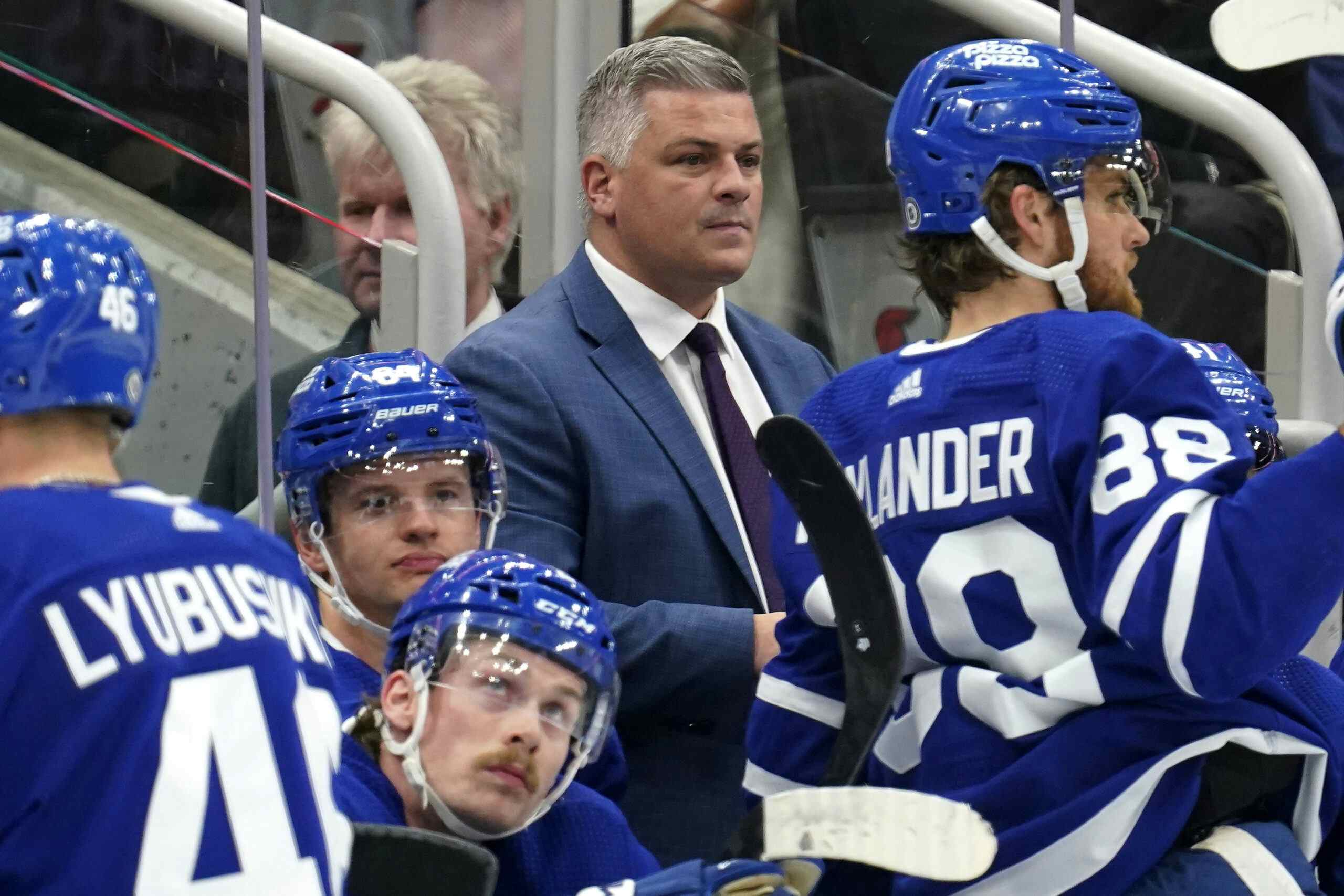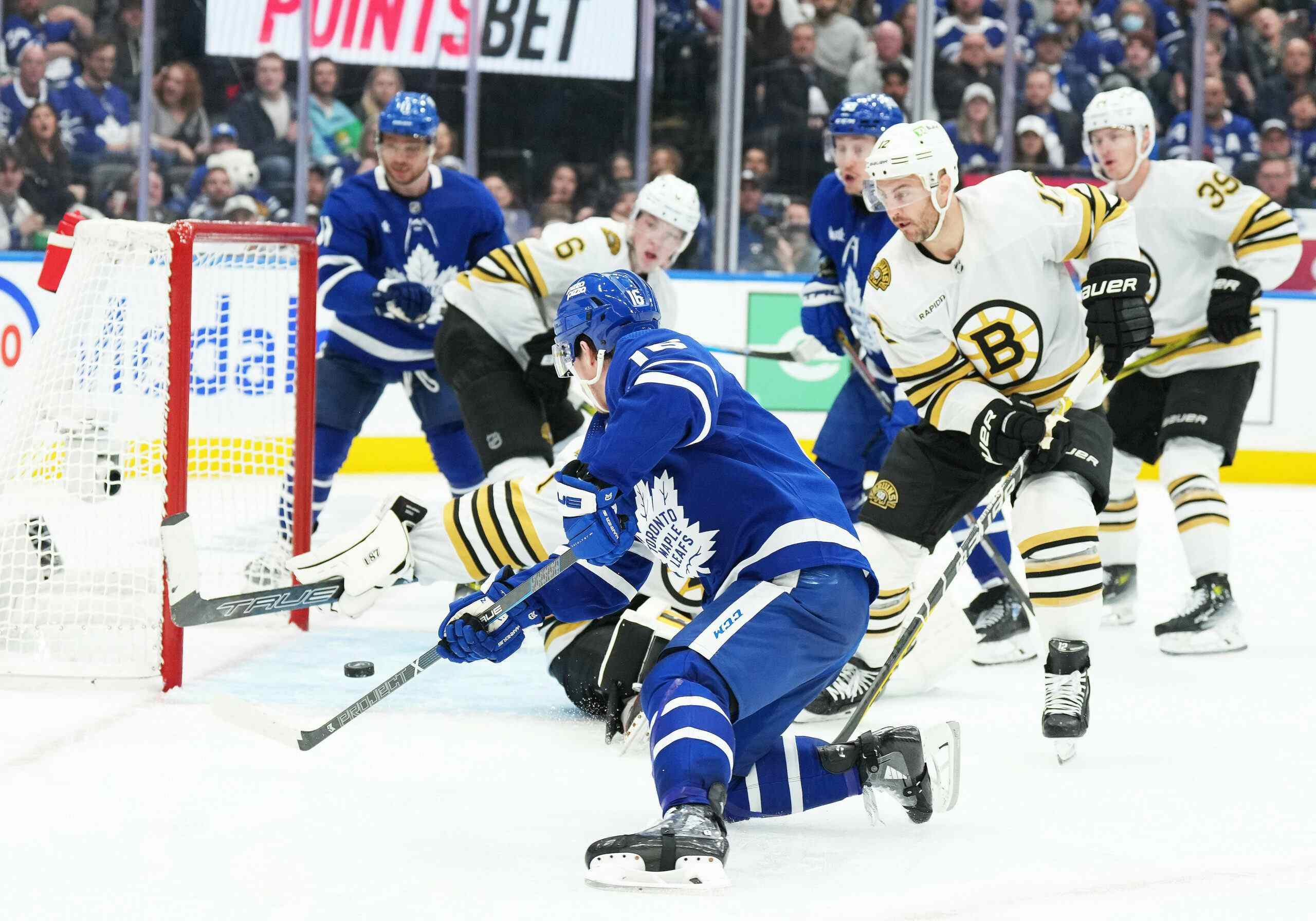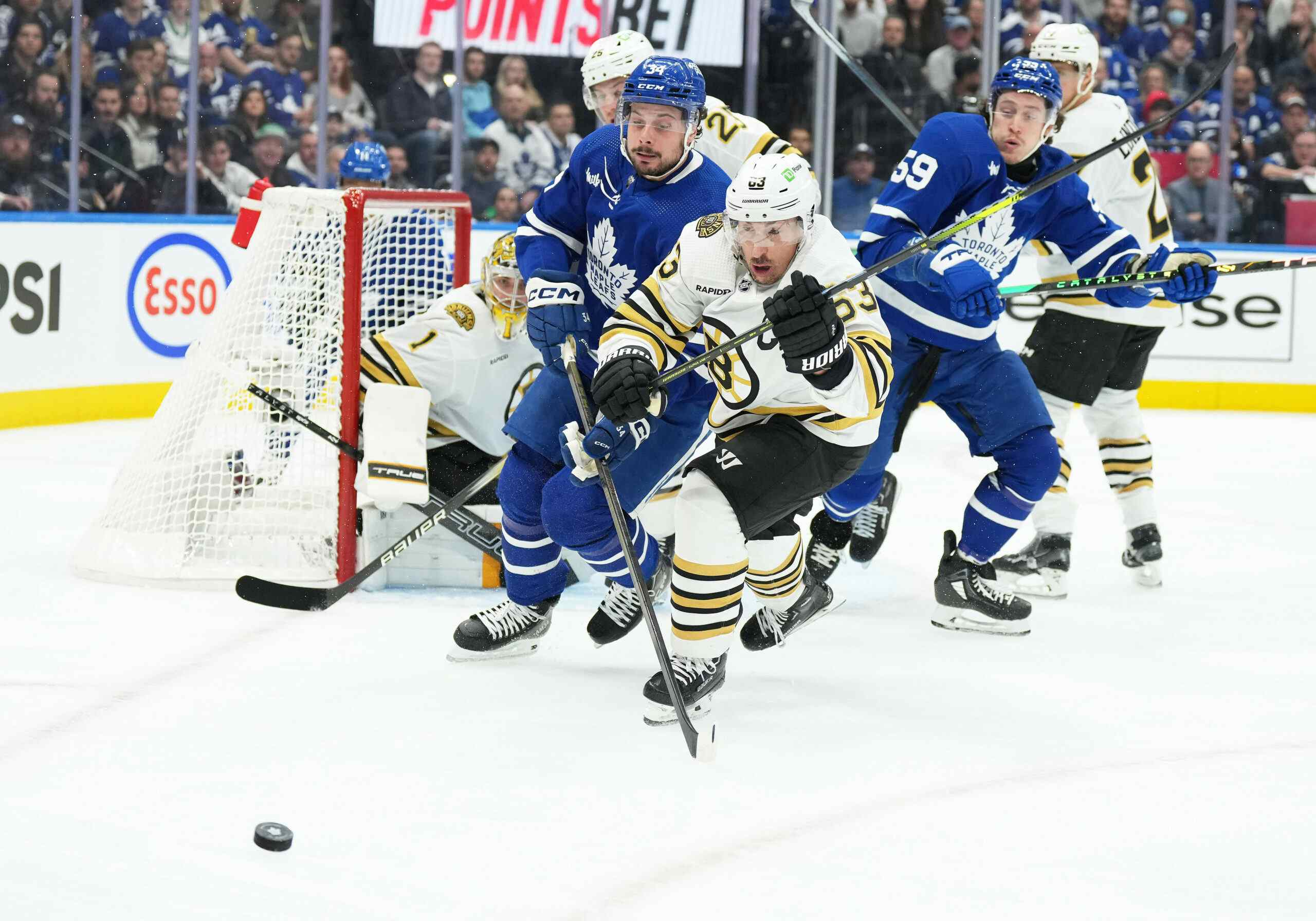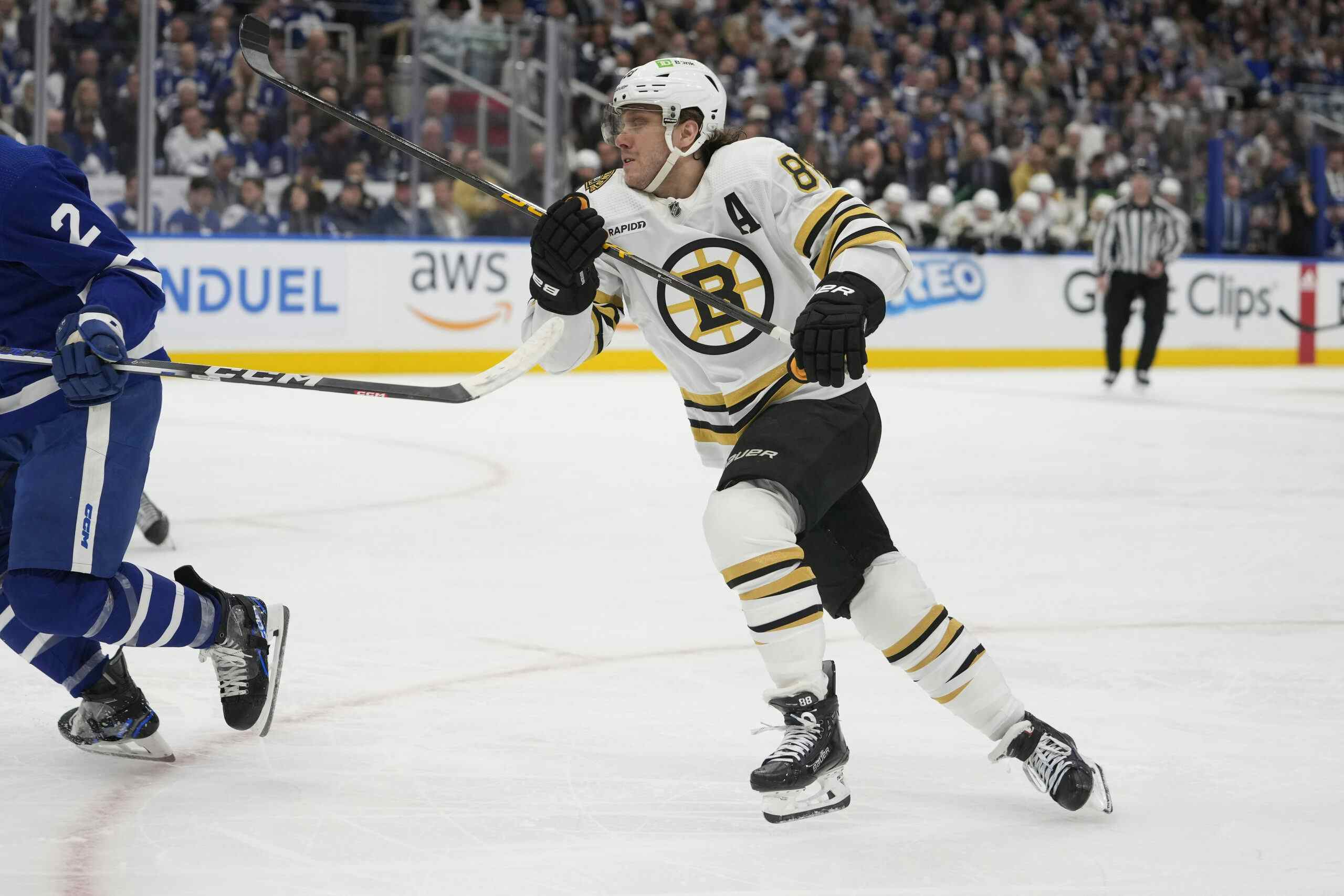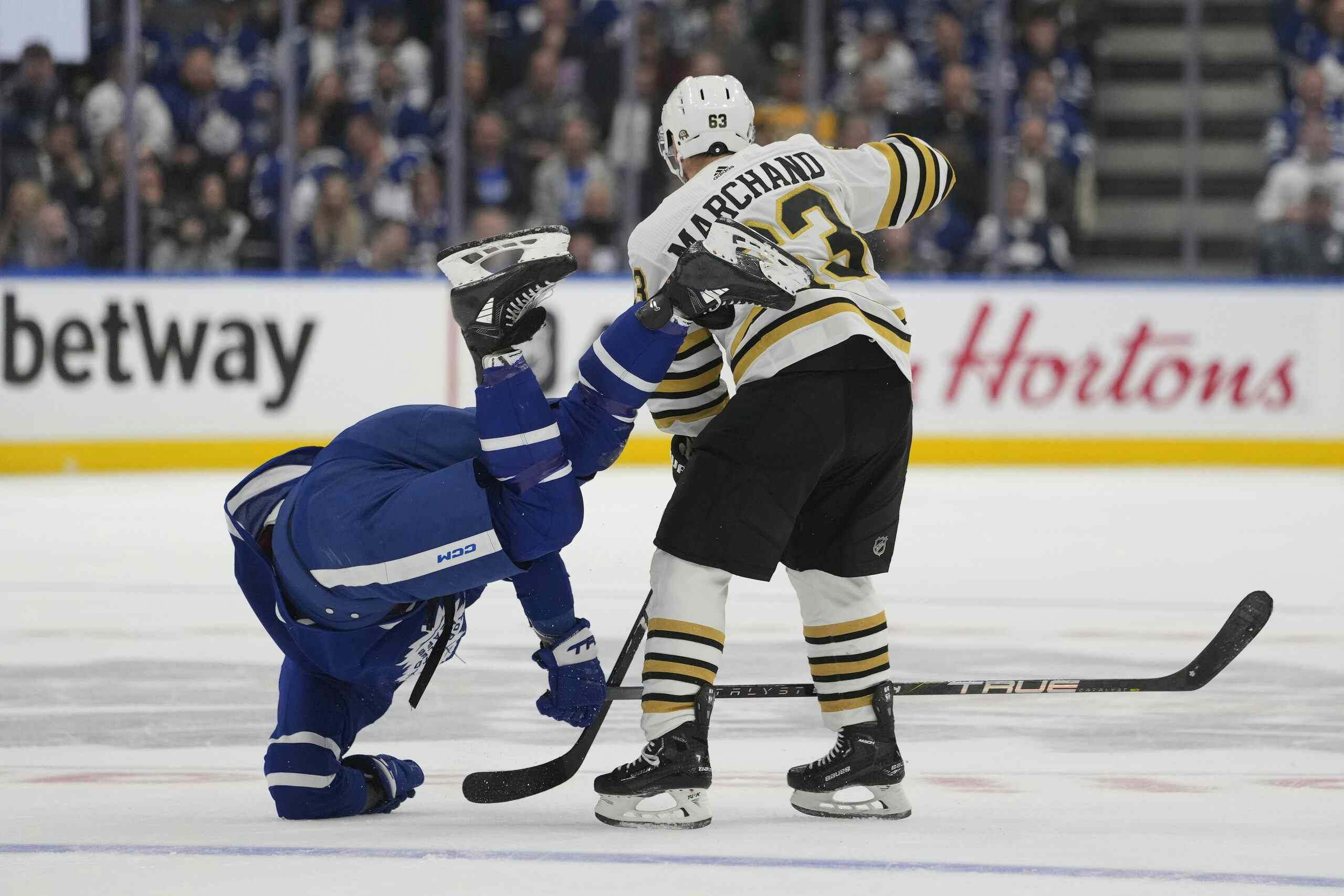Kyle Dubas explains why new Marlies coach Sheldon Keefe will be judged on more than wins and losses
Sheldon Keefe has gone from an outcast to the head coach of the Toronto Marlies – one of the most prestigious head coaching jobs in hockey outside of the NHL ranks – in the blink of an eye. The 2015 OHL coach of the year’s career trajectory is rocketing forward with the dizzying momentum of an Imperator Furiosa-led post apocalyptic Road War.
With the Marlies Keefe will be judged less on his win/loss record than by his ability to develop players, Toronto Maple Leafs assistant general manager Kyle Dubas told the Leafs Lunch crew during an appearance on TSN 1050 radio in Toronto on Monday. He’ll also be tasked with matching Mike Babcock’s systems, and perhaps experimenting with some newer ideas that the organization hopes to eventually implement at the NHL level.
It’s a fascinating opportunity for one of hockey’s highly regarded up-and-coming young bench bosses. Read on for more comments from Dubas about the Keefe hire.
One of the most interesting things that Dubas discussed in his radio appearance on Monday, was the club’s philosophical eschewal of using ‘results’ to judge AHL performance.
“When we look at the Marlies, it’s great, we want the team to win because it serves as a great experience for our players,” Dubas responded when asked whether the club’s AHL-level coaching change was inevitable, regardless of how the club fared in the Calder Cup playoffs under Gord Dineen. “But our primary goal is solely that we have young players playing and more than winning that they’re coming along until the public, the fans and the media and most importantly we see them as (ready to compete in the NHL).
“Winning is important with the Marlies but it’s not even close to the top of the list of what it comes to what we’re evaluating down there.”
That oft-repeated line about hockey being a “results business” is an old, rusty saw. In Dubas’ telling, Keefe may be insulated somewhat from those short-term concerns.
Dubas elaborated on this vision at greater length later in the interview.
“We want the Marlies players to develop so they can come up as soon as possible to help Mike and the Maple Leafs win games,” Dubas said.
“We made a shift last year to make (the Marlies) a younger team, to turn it over to our younger players, and as we did that the team got a lot more exciting and went on a nice run and went into the playoffs… The key with the Marlies is that we want (AHL players) to develop so that they can come up and help so Mike has more assets to utilize as a coach and help the Maple Leafs win games.”
The Maple Leafs’ young assistant general manager also discussed the need to harmonize operations between the NHL club and their AHL affiliate. Considering how often Dubas has discussed doing something similar between the Marlies and the ECHL’s Solar Bears in his first year, this isn’t anything new.
Still, it was interesting to hear Dubas describe Keefe’s new position as an opportunity to learn from new Maple Leafs bench boss Mike Babcock.
“I think that’s one of the things that was attractive to the people we spoke to (about the the position), including Sheldon, was the chance to work with Mike,” Dubas said, adding that “it’s vital” for the Maple Leafs to play the same basic systems as their AHL affiliate.
“The term (Babcock) uses is a burning desire to win, but it’s also a burning desire to learn and improve and find different and better ways that we can do things,” continued Dubas.
To that end Dubas described his vision of a Marlies organization that serves as both an incubator for prospects and for ideas and systems.
“A lot of those things we want to test and work on will probably be used with the Marlies,” Dubas said. “In addition to getting some players ready to the systems they’re going to use with the Leafs, and test out maybe some different systems that the Leafs want to experiment (with)…”
“That link between the (Maple Leafs and the Marlies) – especially being in the same city – needs to be extremely strong and that was an important part of our process here.”
Though Dineen has now been formally replaced as the Marlies’ head coach, Dubas made sure to suggest that this maneuver wasn’t necessarily a reflection of his work last season. Dubas characterized the series of decisions that led to Keefe’s hiring as more about bringing in a sharp, young hockey mind than anything else.
“We thought Gord (Dineen) did a really good job there last season, but we wanted to really search and find – at this time especially there’s a lot of really good young coaches coming up in the OHL and the USHL, and the Western Hockey League and the Quebec league – and we wanted to go through the process of identifying and bringing on one of those coaches for ourselves,” Dubas said.
“Especially once Mike (Babcock) was coming on here, we thought it was a great opportunity for that coach to be with the Marlies and have Mike to lean on… It wasn’t an opportunity we wanted to pass up.”
One thing that comes to mind, for me, is the slide that Dubas presented at the Sloan Conference this past spring. It’s a graph that essentially shows the accumulated shot differential of the Soo Greyhounds during Dubas’ tenure as general manager:
The big black vertical line that denotes when the Greyhounds’ turn around began, by the way, that’s when Dubas hired Keefe.
As with nearly everything else the Maple Leafs have done since late July of last season, the Keefe hire seems to be about prioritizing process and bringing in smart people.
When Dubas talks philosophically about his approach to minor league development, or the NHL scouting combine, or accumulating future assets, he always comes across as extraordinarily intelligent. Talking a big game and adeptly managing the most heavily scrutinized organization in hockey are distinct challenges though. The proof will be in the pudding, and we may have to wait a few seasons before it sets.
Hear Dubas’ complete comments here.
Recent articles from Thomas Drance

